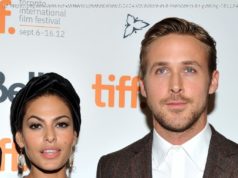New-to-cinema fantasies like ‘Mortal Engines’ are doomed because audiences seek out movies about characters they already know and like.
Universal
Universal and MRC’s The Mortal Engines has currently earned just $7.5 million in North America and $42m worldwide. Even if it legs out like Night at the Museum (not likely), it would still barely top $60m domestic. And with $34m overseas after opening in much of the world, the more likely endgame for the $100m-budgeted fantasy flick is under-$30m domestic well-under $150m worldwide. So, yes, barring an overseas miracle, The Mortal Engines is doomed to join the likes of Jupiter Ascending ($183m on a $175m budget), Valerian and the City of a Thousand Planets ($225m on a $175m budget) and Tomorrowland ($209m on a $190m budget). It is a tragedy, to be sure, but it is an entirely inevitable one.
As 2018 comes to a close, there is a certain pattern in terms of the very biggest of the big box office bombs. It’s no secret that merely offering a big-budget fantasy adventure is no longer enough to qualify your movie as an event film. And it’s no secret that the YA fantasy craze that spawned Harry Potter, Twilight and The Hunger Games is both essentially dead and was itself responsible for a handful of failed attempts for every one successful offering. For every Twilight, we had a few along the likes of The Host, The Darkest Minds, The Giver and The Mortal Instruments. The YA fantasy sub-genre was limping along for the last five years, with only Divergent (for the first two movies, at least) and The Maze Runner keeping the hope alive.
Yes, there have still been hit movies that have YA source material, like The House with a Clock in Its Walls ($130 million worldwide on a $42m budget), but the specific genre tropes defined by Hunger Games and Harry Potter are no longer the stuff of box office magic. If anything, Divergent was the exception to the rule in that it spawned two hit movies (before cratering on the third) despite A) being derivative of its predecessors and B) not selling itself on a popular lead character. If Mortal Engines did anything wrong (beyond existed as stands in the 2018 theatrical environment), it was in not successfully selling its core leading character (Hera Hilmar’s Hester Shaw) as an icon comparable to Harry Potter, Bella Swann or Katniss Everdeen (who was preemptively sold as a defining “strong female character” prior to Hunger Games).
‘The Mummy’ Universal
The core pitch of The Mortal Engines, that it offered a never-before-seen fantasy adventure world sans iconic characters or conventional star power, was the same pitch that doomed Valerian or A Wrinkle in Time. Audiences did not so much turn their back on new-to-cinema concepts as they did turn their backs on the allure of movie stars. Once upon a time, folks would show up for The Fifth Element because it was a Bruce Willis sci-fi actioner. But in 2018, moviegoers no longer show up for Valerian merely because it’s from the same director. Heck, they won’t even show up for The Mummy (relatively speaking…) despite featuring Tom Cruise. They’ll show up for Mission: Impossible partially because he’s playing Ethan Hunt. In 2018, the character is the movie star.
In the newfangled moviegoing age, moviegoers will show up to your movie if they want to see a movie about the character in question.
Home
United States
USA — Cinema Why 'The Mortal Engines' Was A Painfully Predictable Box Office Disaster






